Cardiovascular Health: A Comprehensive Guide
Introduction
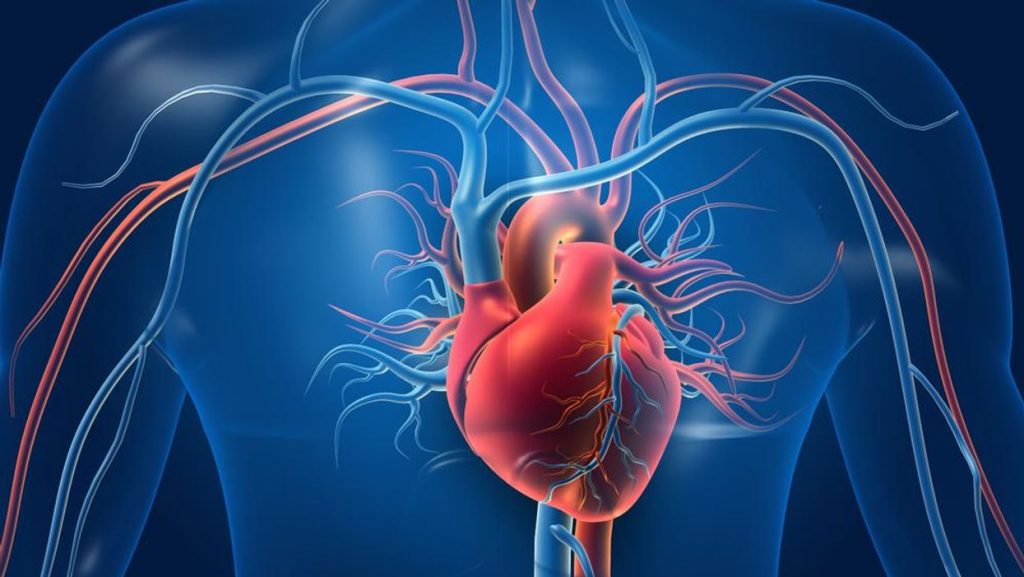
Cardiovascular health is essential, it’s compelling, it’s vital for maintaining overall well-being and longevity. The cardiovascular system, which is made up of the heart and blood vessels, is responsible for delivering oxygen and nutrients to tissues and removing waste products. Cardiovascular diseases (CVDs) such as heart disease, stroke, and hypertension are leading causes of death globally. Fortunately, many cardiovascular conditions are avertable through lifestyle modifications and proactive health management. This article provides a comprehensive guide on how to improve your cardiovascular health, covering diet, exercise, stress management, and other key factors, and also helps prevent cardiovascular diseases such as heart disease, stroke, and hypertension, and also help in improving it.
Understanding Cardiovascular Health
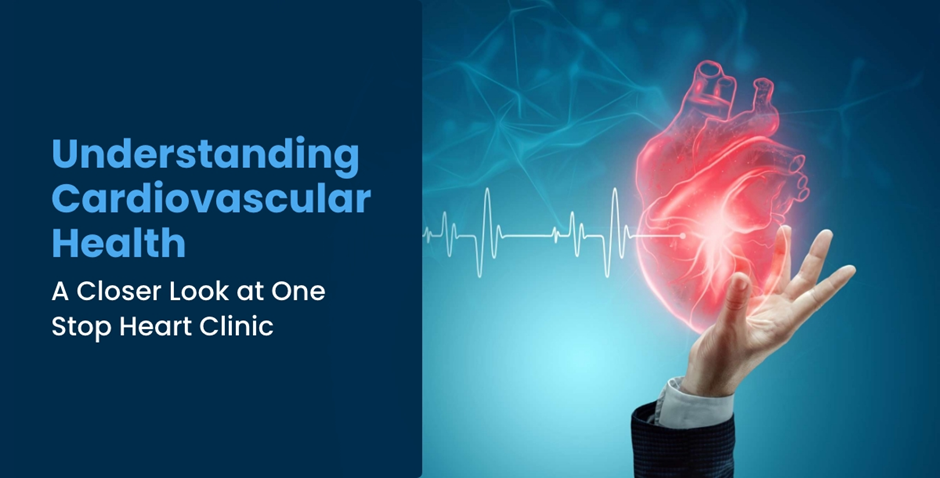
Before diving into specific strategies, it’s essential to understand the basic components of cardiovascular health:
- Heart: The heart is a muscular organ that pumps blood throughout the body. Maintaining a healthy heart involves ensuring it functions efficiently without undue strain.
- Blood Vessels: Arteries, veins, and capillaries make up the blood vessel network, carrying blood to and from the heart. Healthy blood vessels are flexible and free from obstructions.
- Blood Pressure: Blood pressure measures the force of blood against artery walls. Healthy blood pressure levels reduce the risk of heart disease and stroke.
- Cholesterol Levels: Cholesterol is a fatty substance in the blood. Maintaining healthy cholesterol levels helps prevent plaque buildup in arteries.
Dietary Modifications for Cardiovascular Health

A balanced diet plays a crucial role in maintaining cardiovascular health. Here are some dietary guidelines to follow:
- Emphasize Whole Foods: Focus on whole foods such as fruits, vegetables, whole grains, lean proteins, and healthy fats. These foods provide essential nutrients and fiber that support heart health.
- Limit Saturated and Trans Fats: Reduce intake of saturated fats found in red meat and full-fat dairy products. Avoid trans fats found in processed foods, as they increase bad cholesterol (LDL) levels.
- Choose Healthy Fats: Incorporate sources of healthy fats like avocados, nuts, seeds, and olive oil. Omega-3 fatty acids found in fish such as salmon and mackerel are particularly beneficial for heart health.
- Reduce Sodium Intake: High sodium intake can lead to hypertension. Limit salt in cooking and avoid processed foods high in sodium.
- Increase Fiber Intake: Foods high in fiber, such as oats, beans, and vegetables, help lower cholesterol levels and improve heart health.
- Stay Hydrated: Proper hydration supports overall cardiovascular function. Aim for at least 8 cups of water per day.
Exercise and Physical Activity
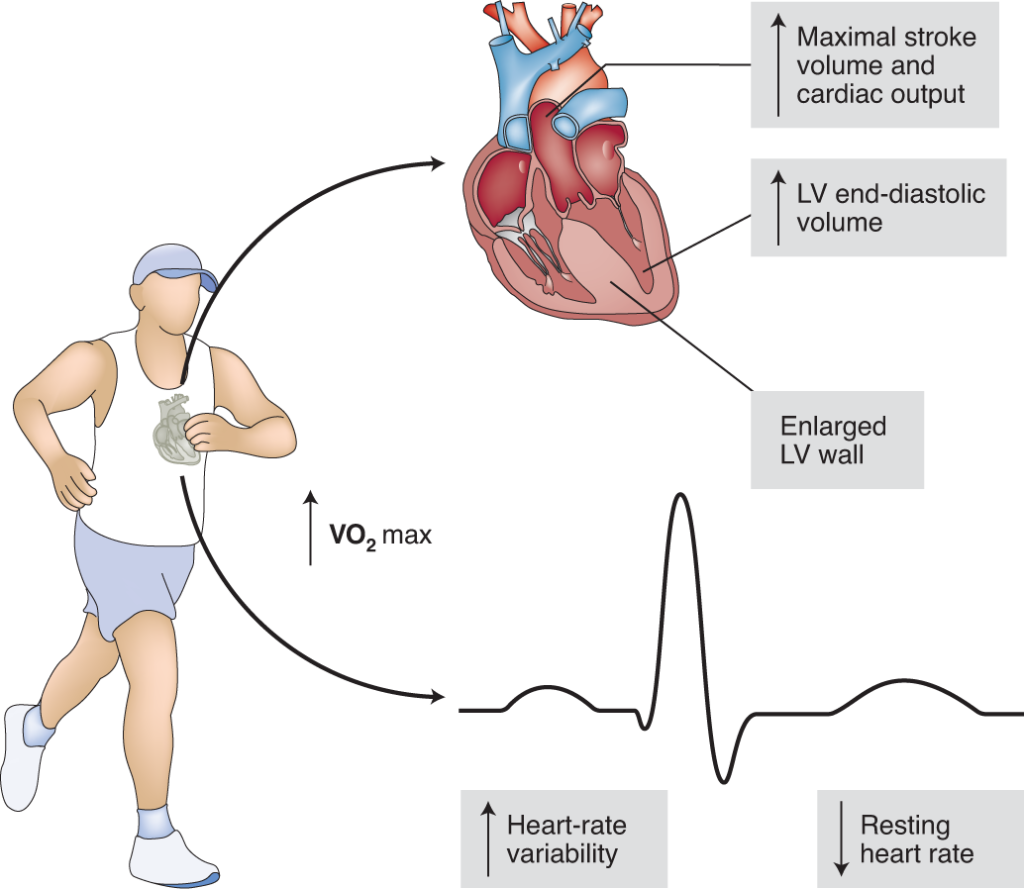
Regular physical activity is one of the most effective ways to improve cardiovascular health. Exercise and physical activities strengthens the heart muscle, improves circulation, and helps maintain a healthy weight. Here are some exercise guidelines:
- Aerobic Exercise: Engage in aerobic activities such as walking, jogging, swimming, or cycling. Aim for at least 150 minutes of moderate-intensity or 75 minutes of vigorous-intensity physical fitness exercise per week.
- Strength Training: Include strength training exercises at least two days a week. This can involve weight lifting, resistance bands, or body-weight exercises.
- Flexibility and Balance: Incorporate flexibility and balance exercises such as yoga or tai chi to improve overall fitness and reduce the risk of falls.
- Active Lifestyle: Incorporate physical activity into daily routines, such as taking stairs instead of elevators, walking or biking to work, and engaging in recreational activities.
Stress Management

Chronic stress negatively impacts cardiovascular health by increasing blood pressure, heart rate, and inflammation. Effective stress management is essential for heart health. Here are some strategies:
- Mindfulness and Meditation: Practicing mindfulness and meditation can reduce stress levels and improve emotional well-being. Techniques include deep breathing, guided imagery, and progressive muscle relaxation.
- Physical Activity: Regular exercise helps reduce stress hormones and trigger the release of endorphins, improving mood and reducing stress.
- Social Connections: Maintaining strong social connections and engaging in social activities can provide emotional support and reduce stress.
- Healthy Sleep: Aim for 7-9 hours of quality sleep per night. Poor sleep quality and insufficient sleep are linked to an increased risk of cardiovascular disease.
- Time Management: Effective time management and prioritizing tasks can reduce stress by creating a sense of control over daily activities.
- Hobbies and Relaxation: Engage in hobbies and activities that bring joy and relaxation. This can include reading, gardening, music, or spending time in nature.
Managing Risk Factors
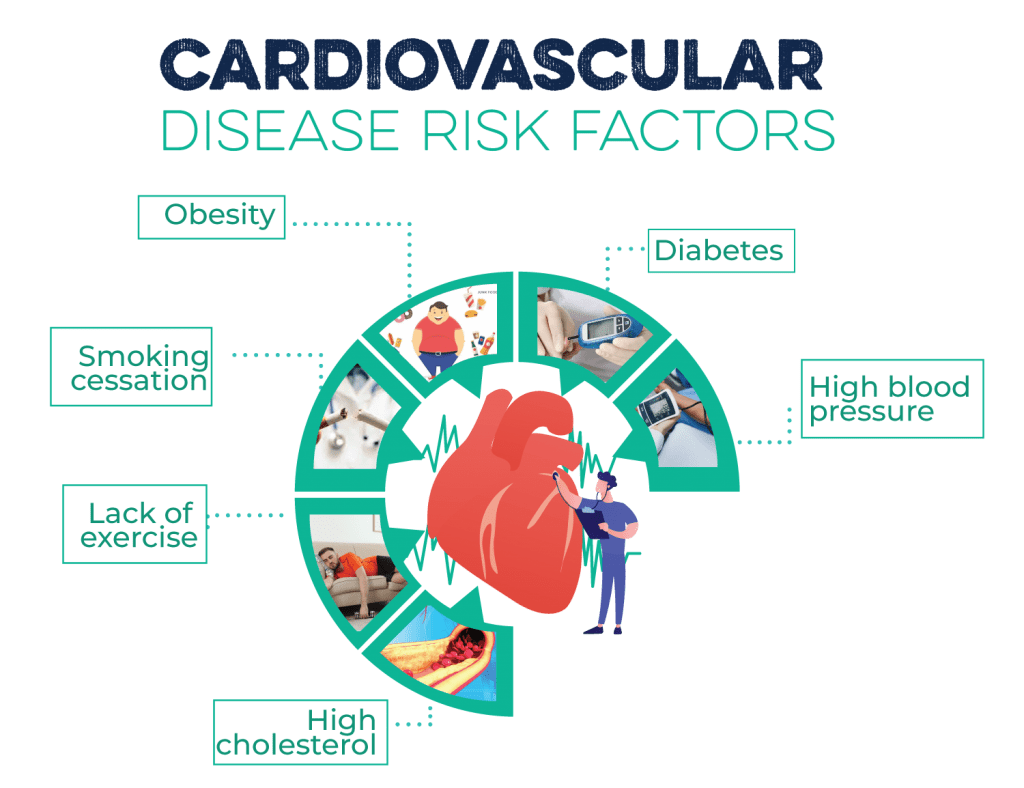
Certain risk factors increase the likelihood of developing cardiovascular disease. Managing these risk factors is crucial for heart health:
- Hypertension: High blood pressure is a major risk factor for heart disease and stroke. Monitor blood pressure regularly and follow medical advice to manage it effectively.
- Cholesterol Levels: Regularly check cholesterol levels and take steps to maintain healthy levels through diet, exercise, and medication if prescribed.
- Diabetes: Diabetes increases the risk of cardiovascular disease. Manage blood sugar levels through diet, exercise, and medication if necessary.
- Smoking: Smoking damages blood vessels and increases the risk of heart disease. Quitting smoking significantly improves cardiovascular health.
- Obesity: Excess weight strains the heart and increases the risk of cardiovascular disease. Maintain a healthy weight through a balanced diet and regular exercise.
Regular Health Check-ups
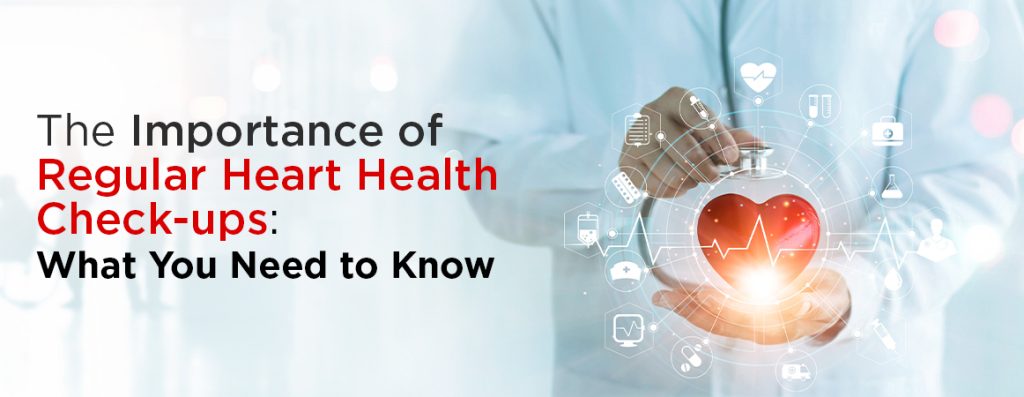
Regular health check-ups are essential for monitoring cardiovascular health and detecting potential issues early. Schedule routine visits with healthcare providers for the following:
- Blood Pressure Checks: Regular monitoring of blood pressure helps detect hypertension early.
- Cholesterol Tests: Regular cholesterol tests help track levels of good (HDL) and bad (LDL) cholesterol.
- Blood Sugar Tests: Regular blood sugar tests are crucial for detecting and managing diabetes.
- Weight and BMI: Monitoring weight and body mass index (BMI) helps assess the risk of cardiovascular disease.
- Electrocardiogram (ECG): An ECG measures the heart’s electrical activity and can detect abnormalities.
- Stress Tests: Stress tests assess how the heart functions during physical activity and can help detect coronary artery disease.
Medications and Treatments

In some cases, lifestyle modifications alone may not be sufficient to manage cardiovascular health. Medications and treatments may be necessary:
- Blood Pressure Medications: Various medications, such as ACE inhibitors, beta-blockers, and diuretics, can help manage high blood pressure.
- Cholesterol-Lowering Medications: Statins and other cholesterol-lowering medications can help manage high cholesterol levels.
- Antiplatelet Medications: Medications like aspirin can help prevent blood clots in individuals at high risk of heart attack or stroke.
- Diabetes Medications: Various medications are available to help manage blood sugar levels in individuals with diabetes.
- Surgical Interventions: In some cases, surgical interventions such as angioplasty, stent placement, or bypass surgery may be necessary to treat cardiovascular conditions.
The Role of Technology in Cardiovascular Health
Advancements in technology have significantly impacted cardiovascular health management. Here are some ways technology is enhancing heart health:
- Wearable Devices: Fitness trackers and smartwatches monitor physical activity, heart rate, and sleep patterns, providing valuable data for managing cardiovascular health.
- Telehealth: Telehealth services provide remote access to healthcare professionals, making it easier to monitor and manage cardiovascular conditions.
- Mobile Apps: Numerous apps offer tools for tracking diet, exercise, and medication adherence, helping individuals stay on top of their cardiovascular health.
- Remote Monitoring: Remote monitoring devices allow healthcare providers to track patients’ health metrics in real-time, enabling timely interventions.
- Artificial Intelligence (AI): AI is being used to analyze medical data, predict cardiovascular risks, and personalize treatment plans.
Improving cardiovascular health is a multifaceted endeavor that involves dietary modifications, regular exercise, effective stress management, and proactive management of risk factors. By adopting a holistic approach and leveraging advancements in technology, individuals can significantly enhance their heart health and reduce the risk of cardiovascular disease.
Regular health check-ups and consultations with healthcare professionals are essential for monitoring and managing cardiovascular health effectively. By prioritizing heart health, individuals can enjoy a longer, healthier life and contribute to the overall well-being of society.
Promoting cardiovascular health awareness and encouraging healthy lifestyle choices are vital steps in reducing the global burden of cardiovascular disease. Together, we can create a heart-healthy future for generations to come.
4o
